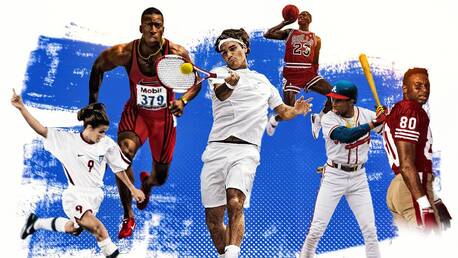|
Each year around Thanksgiving I ask the staff to come up with a few things that they are thankful for. This is usually gym related and I think it’s always nice for the clients to hear the coaches thoughts.
I started this a few years back and with this year being the first with a new staff I wanted you all to get a little insight into the tough but amazing year with this crew…. I’m incredibly thankful for The Strength Feed family. It’s been a weird year for everyone, but making the move to split my time between Asheville and Raleigh has added an additional strange element to 2020 for me. Without the support of TSF coaches and members, this would have been a much more daunting task. I’m so grateful for the opportunity to be a part of this gym family. -Daniel Muto I can honestly say that the Strength Feed saved me. Before working at TSF, I wasn’t happy where I was, I didn’t feel like I was being challenged or supported moving forward with my career. I have been challenged to push myself physically and mentality to expand my horizons to become a better athlete and coach. Besides my career, I am extremely thankful to work with this staff. They all bring a unique expertise and perspective to The Feed. I am also very thankful for the community we have at TSF, consisting of a variety of amazing different people who are always hungry for growth. These, are just a few things I am thankful for at TSF. Happy Thanksgiving everyone! -Rachel Williams What a year it's been. I couldn't have asked for a better place to be, and better people to be around (whether it's in person or virtually) during this year. I am thankful for each and every interaction with the Strength Feed community, and all of the coaches for allowing me join them in an effort to change lives. I truly believe I have the best boss, coworkers, clients, and community ever! I am thankful for you all pushing me to be a better professional and a better athlete each day. -Jess Wight At the beginning of COVID, I went through a panic. We had sent off Graham with a bang and wished him all the best. Then the bottom dropped out with Erin and we were left with nothing. I am so thankful I stuck with my gut when Jess came along because she has been a godsend. She is so organized, beyond helpful and just a kind person to be around. She has exceeded all expectations and continuous to impress everyday. We also got super lucky having Rae recommended to us. I wasn’t sure what situation she was in but her former co-worker told us she wasn’t challenged. He actually tried to steal her to his gym in Fuquay first. Rae came in without an ego, but just a chip on her shoulder to be better and work harder than anyone else. This has been seen time and time again. She makes sacrifices all the time for TSF. Above all else it is noticeable what a happy person she is and there is always a smile waiting for you at the door when you come to train with Rae. I am so thankful that Rae decided to take the job here, and I am so thankful to work with her each day. I also couldn't be luckier having my brother in law coaching with me. This may be one of the easiest things in the world. Not only do I get to see him at work and coach with him. He also lives two doors down, so it's really a non stop discussion on training. This I think, has made us both better coaches. I want all the clients to know how helpful and meaningful their support has been through this unprecedented year. Without the love, the need, or the lasting help with any and everything I truly don’t think that TSF makes it. We have had tons of referrals and that quite possibly is one of the biggest helping hands. Keep us coaching, and we will always be thankful for that.
2 Comments
Many of you reading this are going to get offended. Crossfitters, bodybuilders powerlifters, etc, stop calling yourself athletes! “But bro, I have a triple bodyweight squat.” My response, “Who cares? Your knees would explode from a broad jump.” Anyone who competes in powerlifting, Olympic weightlifting, crossfit, bodybuilding and any other “strength sport” is not an athlete, however athletic they may look. I will give it to you, some of these people are the most athletic looking people in the world, but they just aren’t athletes. Their training can be some of the most grueling, intense training you will ever witness. However, there are a number of variables missing from their training to consider them an athlete. There is even a point of diminishing returns of strength when it comes to most athletes and their sports. Look at the best dunkers in the NBA or the best NFL receivers; do they have 40 “ verticals because they have a 3x BW squat? Is walking across a stage in a banana hammock athletic? Even if you have a 58” chest 36” waist and 22” quads? Since college I have had this conversation with many other coaches and clients in the industry. What constitutes a sport, and what’s the difference between being an athlete and being athletic? Well the dictionary has one definition, your body has another definition, and I also have an opinion of my own. Let me explain. The dictionary says sport is “a contest or game in which people do certain physical activities according to a specific set of rules and compete against each other.” This is pretty simple to comprehend; however, during an elite level chess match the body has a similar hormonal reaction to physical sport. Adrenalin and norepinephrine elevate your blood pressure for even days after a big match. It also has a set of rules and people compete against each other, so why is it not a sport? It wouldn’t be considered a sport because there is no physical activity, even though the hormones in you body say differently. There is a lack of apparent physicality, even if your body is registering it the same way. Now comes my opinion. I think it is important to clear the air. Training between sport and competition differs greatly. This difference is crucial for understanding how to train an athlete verses a competitor. A sport, by definition, should be anything that requires defense, and playing that sport makes you an athlete. There must be an element of physicality to it. Thus, bringing in the reactive component to the mix. Without this it is clearly just a competition, and 99% of the challenge is that competition against your self. Let’s use some other examples. When you run in a track meet you are only capable of running the absolute fastest you can run. If the guy next to you can run faster there is nothing you can do, only hope and pray he or she is about to trip. Take competitive cheerleading and gymnastics, they practice 1,000s of hours to produce their best performance and then can loose due to observational judges. This doesn’t take away from the fact that these men and women are some of the most athletic people I have ever seen. Now lets take soccer. Soccer requires you to play defense against a person or persons to prevent the ball from advancing or scoring. You have to actively try and prevent scoring. This is the key point in recognizing the difference between sport and competition. Now I know this will cause uproar, but if you consider the training, it is all too clear. Sports, real sports, require a litany of explosive reactive training that forces you in and out of uncomfortable positions of the body. It is a constant reaction to an outside force or stimulus. You have to be an athlete, and most of the time the more athletic you are the more successful athlete you can become. Competition on the other hand does not require any of this. Powerlifting, running (short and long distance), CrossFit, swimming, and the majority of Olympic “sports” are all the same. You do not have to be an athlete to compete and be successful, you just have to be athletic, and in some cases you don’t even have to be the latter. I mean, have you seen some of the powerlifters and marathon runners!? I have literally walked outside in the middle of a USAPL meet to find 1-3 guys smoking a cigarette, in between lifts! Now I am not out to say elite level marathon runners, powerlifters, crossfit-ers, swimmers have an easier training regiment, I am just saying it is a much different regiment. A lot of what I do with my athletes is to work to make them comfortable being uncomfortable. With competition everything is predicable. If you’re swimming, you swim in a straight line, if you run the 800, it’s two laps in a circle. Even a highly complex gymnastics routine requires thousands of hours of practice for it to become the most predictable and require the least amount of thinking. That’s the point of practicing it right? Now take hockey, when you step on that ice you have no idea how the game will play out or what the requirements will be on your body. Basketball, tennis, baseball and the majority of other ball sports require you to change approach and responses in milliseconds. As a strength coach, it is required for us to know the differences in sport and competition from a biomechanical and energy requirement standpoint. It is also good for us to know the difference, so we can apply things like the SAID principle to our training. I use the term athlete verses athletic to describe the requirements of that training. Bottom line, competitors shouldn’t be offended when they aren’t referred to as athletes. |
AuthorsJoseph Pearson Archives
November 2020
Categories |
HoursBy Appointment
|
Telephone(984) 204 6295
|
|
Address
|



 RSS Feed
RSS Feed